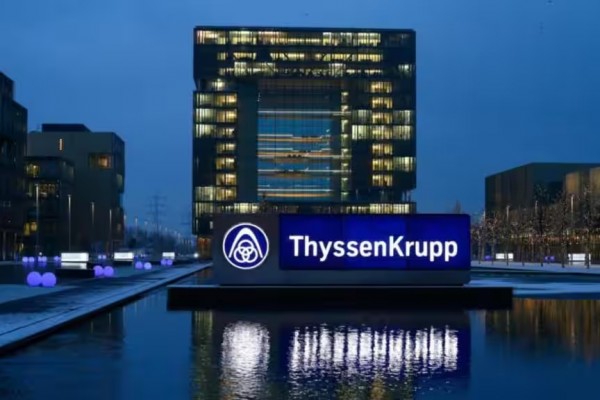On December 10, the first session 11th Meeting of the UNCTAD
Research Partnership Platform took place via video conference: the
distinguished experts discussed the role of competition policy, shared
their views and exchanged opinions on whether and how competition policy
could complement industrial policy and other economic recovery measures
being taken. Under the global impact of COVID-19 pandemic, the
governments and agencies of every country, including developing ones,
have been trying to implement economic and health measures in order to
protect their economies, businesses and consumers, and the RPP
discussion was mainly dedicated to the role of competition policy in a
fair and inclusive economic recovery.
The session was opened by
Ms.Teresa Moreira, the Head of UNCTAD Competition and Consumer Policies
Branch, who introduced the topic and brought up the questions of main
interest. She mentioned that after 10 years of fruitful activity the
UNCTAD Research Partnership Platform was seeking the ways of
revitalizing mutual partnership, as well as reviewing and updating areas
of work, keeping the UNCTAD focus on the digital economy and developing
countries’ needs and challenges.
The discussion was moderated by Ms.
Ebru Gokce Dessemond from UNCTAD Competition and Consumer Policies
Branch. She briefly presented the current work of RPP, including its
activity in the period of pandemic, and introduced some research papers,
both recently completed and still being prepared.
The first
panelist, Prof. Eleanor Fox, Walter J. Derenberg Professor of Trade
Regulation in New York University School of Law, mostly focused on the
impact of pandemic and the priorities of national competition agencies,
which included dominance and monopoly, mergers, cartel and agreements.
Ms Fox emphasized that agencies had to pinpoint what they could do to
most help the people and to do their best to make more difference. In
the times of crisis the agencies tried to provide goods to people, so
they allowed many exemptions in the industries of high concentration
risk, and there could be a setback in the fighting economic
concentrations. Prof. Fox also pointed out that all countries should
spend their resources wisely and not spend their time, only
investigating mergers, but collaborate and work more on regional
agreements. She expressed her concerns about the inequity of bargaining
power, an exclusion of poor people and small businesses from global
processes and encouraged everyone to promote common access and
participation in the market, as the inclusiveness and fairness were
widely recognized values.
Dr. Thando Vilakazi, the Executive
Director of the Centre for Competition, Regulation and Economic
Development (CCRED) in University of Johannesburg, addressed the
importance of economic development and the ways to achieve better
outcomes for regions and economies. He expressed that the success in
development was not always in competition law, as not all markets that
were efficient had good competition policy. Dr. Vilakazi’s main
suggestion was to find the right balance between competition and
industrial policies and to implement the last one effectively. COVID had
a cleansing effect and pushed out inefficient forms of market, but it
was also an external shock, so supporting policies were needed. Many
business had to rebuild their capabilities, and the best way to do it,
in Dr. Vilakazo’s point of view, was to support them through industrial
policies, combined with fighting cartels by the means of competition
law.
Prof. Alexey Ivanov from Moscow Higher School of
Economics, the Director of BRICS Competition Law and Policy Center,
emphasized the lack of global cooperation system and the shift in the
nature of competition. To illustrate and prove his point, he used a
showcase of vaccine and treatment development. In 70s the humanity
suffered the impact of the Hong Kong virus, and the reaction was quite
successful, thanks to the WHO-established Global Influenza Surveillance
and Response System: 122 countries created data exchange mechanisms. But
during the COVID-19 pandemic we saw the very different competitive
dynamic, which indicated the negative effects of unilateralism: the
world entered into a vaccine race. Mr Ivanov pointed out the key reasons
of such unwillingness to cooperate: we became too much driven by
national domestic issues; IPR played more important role today than in
70s, when in fight against flu both companies and countries had been
more flexible in providing access to data and research; no international
legal framework existed to contain the rivalry into acceptable limits.
“We now face 115 million people below poverty line in 2020 versus $24
billion of expected profits for pharma companies in 2021,” Prof. Ivanov
said. “We witness how in the pursue of profit the market power becomes a
form of controlling population and development of species. The possible
outcome is that we won’t be able to restrain the pandemic. It needs
constant updates, sharing of analytics, data pooling. If the virus will
mutate, it would be impossible for us to catch up on our own.” Dr.
Ivanov advised that we reconsidered our approach to share competitive
landscape in pharma sector: otherwise the pandemic would be not only a
threat to inefficient businesses but also an existential threat to
humanity. In the end of his speech, Alexey Ivanov announced the research
paper on killer acquisitions, which would be released in the nearest
future by the BRICS Competition Centre.
Mr. Thomas Cheng, the
Associate Professor of Faculty of Law in University of Hong Kong,
followed the content of his book “Industrial Policy and Economic
Recovery after Covid-19” and introduced the concept of industrial
policy. Based on his thorough analysis of international experience, his
main conclusion was that the effectiveness of industrial policy was
controversial, as it only tended to be beneficial if used offensively to
pursue efficiencies – it did not work as a defensive tool to protect
inefficient domestic firms and was very difficult to implement in most
developing countries. It applied well to East Asian countries, where the
government had a singular or even obsessive focus on the goal of
economic growth and development. He introduced the East Asian Model: to
successfully implement industrial policy Japan, Korea and Taiwan used
some restrictive measures, such as strict selectivity and time
limitation of government intervention, massive investment in
infrastructure, centralization of strategic industrial decisions in
competent authorities and a highly selective use of foreign direct
investments. Thomas Cheng drew a distinction between horizontal
(general, applicable across the borders and economy) and vertical
(selective, sector- or even firm-specific) policies. In respect to the
economic measures in light of COVID-19 Mr. Cheng stated that so far most
policies were horizontal and did not conflicted significantly with
competition laws but differential access to governments’ assistance
still existed, sometimes mostly benefiting large firms and taking
advantage of small firms. He noted that, when dealing with long-term
consequences of Covid-19, governments risked to rationalize cartels, to
allow mergers that involve failing firms or to protect national
champions in certain industries, so these issues had to be watched out
during economic recovery.
Prof. Paulo Furquim de Azevedo from
the Center for Regulation and Democracy at Insper addressed to issue of
successful recovery and stated that we needed cooperation instead of
autonomous adaptation. He shared his personal concern that we may have
COVID sequel in future. World suffered multiple shocks (demand, supply,
inequality), businesses were uncertain about the duration of crisis,
and, if adapted autonomously, markets did not adjust properly. The
solution was not only about extending competition authority goals – it
was also in the capability to promote cooperation, which concerned
various branches of policy and not just competition law. Although the
ICN declared to promote and to protect competition, some governments
straightly intervened in prices in response to people’s need, which was
ineffective in a short run and harmful in the long run. Prof. Paulo
Furquim summarized the legacy of COVID-19, mentioning that in extreme
conditions competitive markets might not adapt properly and urgent
political answers were potentially harmful for future development. He
described an industrial policy as an effective tool to coordinate supply
and allocate essential goods but not to protect domestic firms. Mr.
Paulo Furquim proposed to pay attention to transparency, accountability
and participation of competition authorities in order to avoid the
conventional risks of industrial policies.
While giving their
final commentary, all the panelists came to a conclusion that fairness
and inclusivity were crucially important, as the pandemic had
exacerbated the existing problems. The competition law itself was not
sufficient to overcome all economic challenges. COVID was a test to
humanity and international organizations to find out, whether we were
capable to handle the crisis and find mutual understanding and
cooperate. The common long-term goal was less vulnerability to such
shocks in future and creation of effective tools to achieve it.
In
the end of the session Dr. Pierre Horna, the Legal Affairs Officer of
UNCTAD presented his book “Fighting Cross-Border Cartels: The
Perspective of the Young and Small Competition Authorities” (Hart
Publishing, Oxford, 2020). The book was published in March, precisely
when the pandemic started. Dr. Horna mentioned major myths about CBCs
(younger agencies should prioritize domestic cartels etc), introduced
the structure of the book and emphasized its significance for
international cooperation in times of crisis and the additional
possibilities for competition authorities from developing world to fight
cross-border cartels. The book was already presented in July, during
the webinar, organized by BRICS Competition Law and Policy Centre, the
respective materials are available via the following links:




